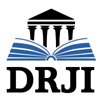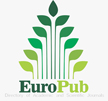APPLICATION OF BLENDED LESSONS ON PRODUCTIVE COURSES OF CLASS XI VOCATIONAL SCHOOL
Abstract
The Covid-19 pandemic has affected various areas of life, including the education sector. The education sector is faced with adapting to new habits in the new normal era. Blended learning is an alternative learning in the current new normal era. This study aims to determine the achievement of productive learning in the new normal era with the blended learning method in aspects of school infrastructure readiness, teacher readiness and learning activities using this method. The survey method was used to obtain quantitative data by taking the population and sample of class XI of the Cooling and Air Conditioning Engineering Skills Program at SMKN 1 Cimahi as many as 70 students. Data collection techniques by distributing questionnaires and interviews. The results of the blended learning method are obtained as a solution for learning methods, especially for productive learning methods in this new normal era. The results of the aspect of infrastructure readiness in schools in preparing facilities and infrastructure related to the Covid-19 health protocol were obtained before learning activities began, with an interpretation score of 1718 which showed that it was in the good category. In addition, the aspect of teacher readiness in learning in the new normal era by using the blended learning method in terms of developing learning media, knowledge and competence, obtained an interpretation score of 1529 which showed it was in the good category. Furthermore, in the aspect of learning activities, students have high enthusiasm and make effective limited time in learning using the blended learning method, with an interpretation score of 1718 which shows this aspect in the good category. In conclusion, productive learning using blended learning learning methods in the new normal era makes practicum activities can be carried out properly and can achieve the specified target so that it has a good effect on improving student learning outcomes.
Keywords
Full Text:
PDFReferences
Adri, F. M., Giatman, M., & Ernawati, E. (2021). Manajemen pembelajaran pada masa pandemi covid-19 berbasis blended learning. JRTI (Jurnal Riset Tindakan Indonesia), 6(1), 110-118.
Anggrawan, A. (2019). Analisis Deskriptif Hasil Belajar Pembelajaran Tatap Muka Dan Pembelajaran online Menurut Gaya Belajar Mahasiswa. MATRIK : Jurnal Manajemen, Teknik Informatika dan Rekayasa Komputer, 18(2), 339-346.
https://doi.org/10.30812/matrik.v18i2.411
Arafah, N., & Bahri, S. (2020). Peningkatan human capital dalam proses pembelajaran di era new normal. Jurnal Manajemen Bisnis, 17(3), 425-444.
Bahri, S., & Arafah, N. (2020). Analisis manajemen SDM dalam mengembangkan strategi pembelajaran di era new normal. Tafkir: Interdisciplinary Journal of Islamic Education, 1(1), 20-40.
Deni Permana, I. K. (2021). Inovasi pembelajaran dengan model blended learning di masa pandemi covid 19. VOCATIONAL: Jurnal Inovasi Pendidikan Kejurusan, 1(1), 31-47.
Garrison, D. R., & Kanuka, H. (2004). Blended learning: Uncovering its transformative potential in higher education. The internet and higher education, 7(2), 95-105.
Hardiyanti, W. E., Sulkifly, S., & Tuasikal, J. M. S. (2021). Kesiapan penerapan pembelajaran aktif, kreatif dan menyenangkan bagi anak usia dini di era new normal. Student Journal of Early Childhood Education, 1(1), 1-10.
Hasanah, U. H. U., & Hasanah, I. F. H. I. F. (2021). Internalisasi Pemahaman Moderasi Multikultural Dalam Pendidikan Islam Masa New Normal. Attanwir: Jurnal Keislaman Dan Pendidikan, 12(1), 32-50.
Hikmah, A. N., & Chudzaifah, I. (2020). Blanded Learning: Solusi Model Pembelajaran Pasca Pandemi Covid-19. Al-Fikr: Jurnal Pendidikan Islam, 6(2), 83-94.
Hosaini, H. (2020). Pembelajaran dalam era “new normal” di pondok pesantren Nurul Qarnain Jember tahun 2020. LISAN AL-HAL: Jurnal Pengembangan Pemikiran dan Kebudayaan, 14(2), 361-380. https://doi.org/10.31962/lah.v14i2.860
Majir, A. (2019). Blended Learning dalam pengembangan pembelajaran suatu tuntutan guna memperoleh keterampilan abad ke-21. Sebatik, 23(2), 359-366. https://doi.org/10.31962/sebatik.v23i2.6
Masgumelar, N. K., & Mustafa, P. S. (2021). Pembelajaran Pendidikan Olahraga Berbasis Blended Learning untuk Sekolah Menengah Atas. Jurnal Kejaora (Kesehatan Jasmani Dan Olah Raga), 6(1), 133-144.
Noval, A., & Nuryani, L. K. (2020). Manajemen pembelajaran berbasis blended learning pada masa pandemi covid-19 (studi kasus di mas YPP Jamanis Parigi dan MAN 1 Pangandaran). Jurnal Isema: Islamic Educational Management, 5(2), 201-220.
https://doi.org/10.15575/isema.v5i2.10509
Noviansyah, N. (2015). Pembelajaran bauran blended learning) terampil memadukan keunggulan pembelajaran face-to-face, e-learning offline-online dan mobil learning. At-Turats, 9(2), 75. https://doi.org/10.24260/at-turats.v9i2.318
Permana, D., Kudsi, I., Salam, M., Iriantara, Y., & Barlian, U. C. (2021). Inovasi pembelajaran dengan model blended learning di masa pandemi covid 19 (studi kasus di sekolah berbasis pesantren smk maarif nu ciamis). VOCATIONAL: Jurnal Inovasi Pendidikan Kejuruan, 1(1), 31-47.
Sari, M. (2016). Blended learning, model pembelajaran abad ke-21 di perguruan tinggi. Ta'dib, 17(2), 126-136.
Soler, R., Soler, J. R., & Araya, I. (2017). Subjects in the blended learning model design. Theoretical-methodological elements. Procedia-Social and Behavioral Sciences, 237, 771-777.
Suriadi, H. J., Firman, F., & Ahmad, R. (2021). Analisis problema pembelajaran daring terhadap pendidikan karakter peserta didik. Edukatif: Jurnal Ilmu Pendidikan, 3(1), 165-173.
Shadiqien, S. (2020). Efektivitas komunikasi virtual pembelajaran daring dalam masa PSBB
(studi kasus pembelajaran jarak jauh produktif siswa SMK Negeri 2 Banjarmasin).Jurnal Mutakallimin : Jurnal Ilmu Komunikasi, 3(1).
https://doi.org/10.31602/jm.v3i1.3573
Wicaksono, D., Suradika, A., Winata, W., & Shodiq, N. A. (2021). Pengembangan model kurikulum digital dan pembelajaran berbasis virtual set adaptif di SMK Atlantis Depok. Jurnal Instruksional, 3(1), 40-50.
DOI: https://doi.org/10.17509/jmee.v8i2.41088
Refbacks
- There are currently no refbacks.
Copyright (c) 2021 UNIVERSITAS PENDIDIKAN INDONESIA

This work is licensed under a Creative Commons Attribution-ShareAlike 4.0 International License.
Indexed by:
ISSN: P 2356-4997
View My Stats
 Journal of Mechanical Engineering Education (Jurnal Pendidikan Teknik Mesin)
Journal of Mechanical Engineering Education (Jurnal Pendidikan Teknik Mesin)







